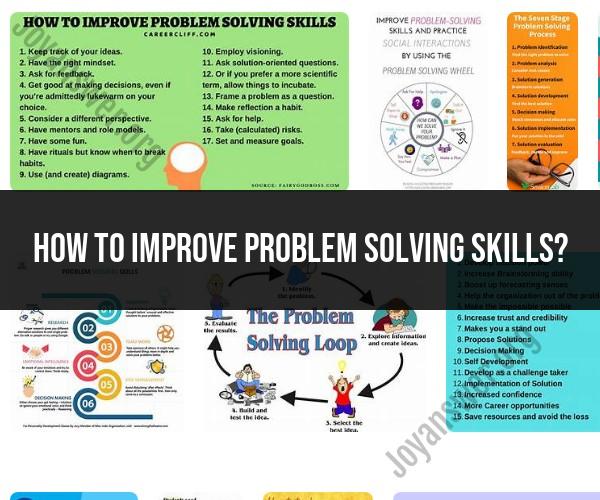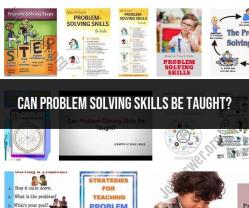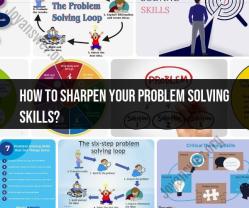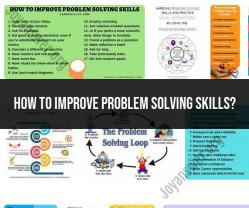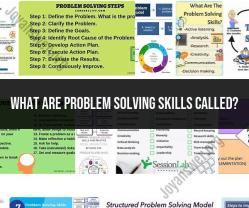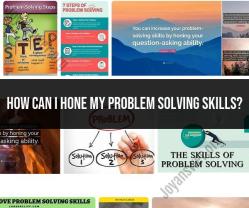How to improve problem solving skills?
Improving problem-solving skills is a valuable and achievable goal that can benefit you in various aspects of life. Here are practical techniques to enhance your problem-solving abilities:
Practice Regularly:
- Like any skill, problem-solving improves with practice. Seek out opportunities to solve different types of problems, whether they are puzzles, real-life challenges, or work-related issues.
Understand the Problem:
- Take the time to clearly define the problem you're facing. Ensure you understand the key elements and any constraints involved.
Break It Down:
- Divide complex problems into smaller, more manageable parts. This makes it easier to analyze and solve them step by step.
Use Structured Approaches:
- Familiarize yourself with problem-solving frameworks like the "5 Whys" method, the scientific method, or root cause analysis. These structured approaches can help you systematically identify and address issues.
Creative Thinking:
- Encourage creativity by brainstorming multiple solutions, even unconventional ones. Don't be afraid to think outside the box.
Research and Gather Information:
- Collect relevant data and information that can provide insights into the problem. This may involve conducting research, talking to experts, or consulting reliable sources.
Analyze Options:
- Evaluate the pros and cons of each potential solution. Consider the short-term and long-term consequences of your choices.
Seek Input and Collaboration:
- Don't hesitate to seek input from others, especially if the problem is complex. Different perspectives can lead to better solutions. Collaborate with colleagues, mentors, or friends.
Set Goals and Prioritize:
- Clearly define your objectives and prioritize them. Determine what you want to achieve and the most critical aspects of the problem to address first.
Decision-Making:
- Make decisions based on the analysis of your options. Trust your judgment and be prepared to take calculated risks.
Test and Iterate:
- Implement your chosen solution and monitor the results. Be open to adjustments and improvements as needed.
Learn from Mistakes:
- Don't fear failure or setbacks. Mistakes are opportunities for learning and growth. Analyze what went wrong and apply those lessons in future problem-solving endeavors.
Stay Organized:
- Keep track of your problem-solving process, including your observations, data, and decisions. This helps you stay organized and track your progress.
Stay Informed:
- Continuously learn and stay informed about new methods, tools, and technologies related to problem solving.
Stay Calm and Manage Stress:
- Stress can hinder problem solving. Practice stress management techniques such as deep breathing, meditation, or exercise to stay calm under pressure.
Reflect and Evaluate:
- After solving a problem, take time to reflect on the process and outcome. Consider what worked well and what could have been done differently for future reference.
Set Realistic Expectations:
- Understand that not all problems have immediate solutions, and some may require time and persistence. Be patient and persistent in your problem-solving efforts.
Seek Feedback:
- Invite feedback from peers, mentors, or supervisors. Constructive feedback can help you refine your problem-solving skills.
By consistently applying these techniques and approaches, you can enhance your problem-solving skills and become more effective at addressing a wide range of challenges in your personal and professional life.
